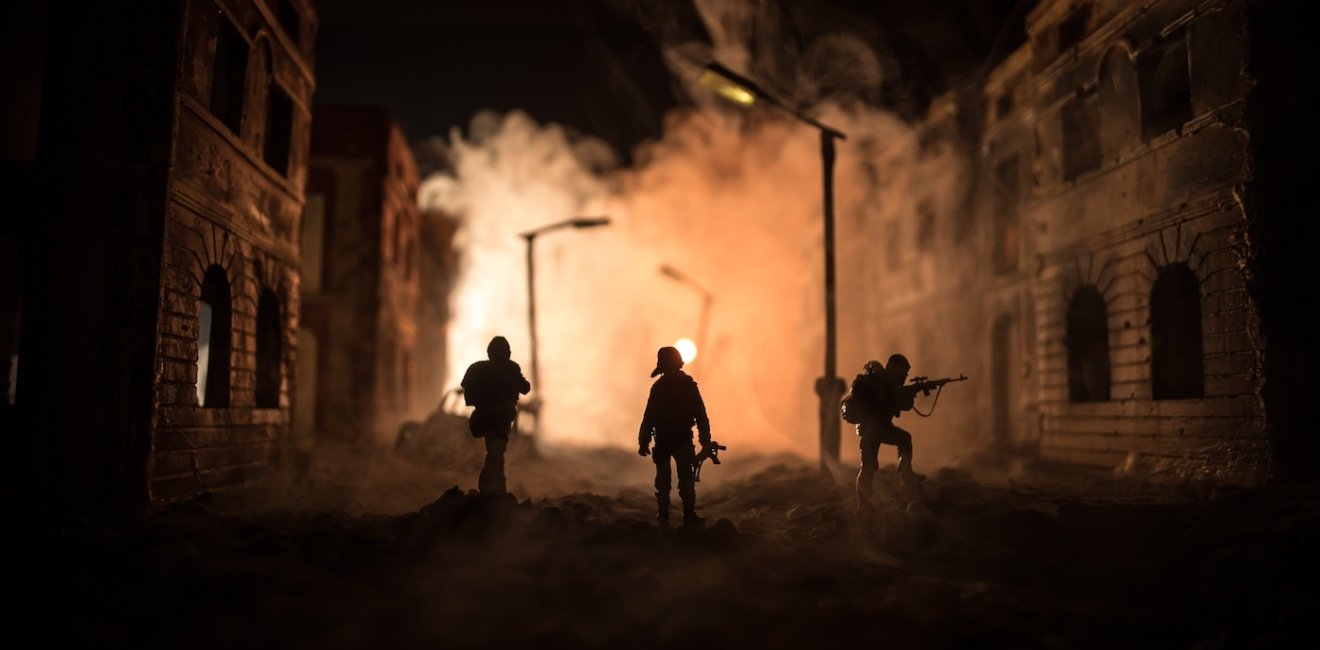
A blog of the Kennan Institute
The Ukrainian Armed Forces' recent advances in the Kursk region of Russia have not only taken Western observers by surprise, they have also exposed unforeseen vulnerabilities in the Russian Federation's military posture.
As expected, Russia has downplayed the operation's significance while simultaneously launching a counterterrorism initiative, characterizing Ukraine's actions as provocative and blaming Western nations for supporting these incursions.
While the Ukrainian side maintains operational security, Western analysts and officials have approached the situation with caution, carefully evaluating the goals, possible courses of action, and potential consequences of this operation.
However, in the context of the West's typically restrained rhetoric regarding Ukrainian strikes on Russian territory, the reaction of the United States and the EU may signal a shift in how escalation factors in the Russo-Ukrainian War are being perceived.
This piece explores the legality of the Kursk operation under international law and examines whether it could provoke actions toward escalation from Russia.
Legal Foundations
Article 51 of the UN Charter enshrines the right of self-defense for states under armed attack, pending any necessary actions by the Security Council to restore international peace and security.
To invoke this right, a state must present evidence of an armed attack directed against it—a criterion indisputably met in the context of the Russo-Ukrainian War. Thus, under the UN Charter, Ukraine is entitled to self-defense, potentially encompassing the full range of methods and means of warfare, including strikes on the territory of the aggressor state.
At the beginning of the invasion, however, Ukraine's resources were insufficient to repel the aggression and contain Russian forces, let alone mount counteroffensive operations. Western partners intervened, providing weapons, funding, and intelligence. Yet this assistance comes with the expectation that Ukraine will consider its partners' interests when planning and conducting operations, whether conventional or irregular.
One of these key concerns is arguably the need to control escalation.
Legally, this concern is reflected in the ad bellum aspect of the principles of neutrality and proportionality, which guide the provision of assistance to Ukraine in its self-defense.
The issue of escalation has been influencing discussions on the Russo-Ukrainian War, from the supply of weapons to Ukraine to the conduct of military operations. Yet it had never been raised overtly, even with regard to the most controversial Ukrainian actions, such as Ukrainian attacks on Russian oil refineries.
Despite provocations, such as the advance of Russian forces deep into Ukraine or egregious war crimes such as the attack on the children’s hospital, Okhmatdyt, the United States and NATO have maintained a cautious stance.
Shifting Rhetoric
With the launch of the Kursk operation, despite it being labeled as risky, Western rhetoric has started to evolve, tacitly affirming Ukraine’s right to broaden the range of methods of self-defense.
Notably, the legal framework governing these events continues to emphasize the principles of neutrality and proportionality. This explains the sensitivity surrounding the supply of weapons to Ukraine and their use in strikes on Russian territory. Additionally, the nuclear threat from Russia remains a constant concern.
From a legal standpoint, Russia's accusations of neutrality violations against the United States are baseless. However, the law cannot be disregarded simply because the adversary denies it—the net result would probably be more disorder and less humanity. Therefore, it remains crucial to consider the proportionality of actions taken in support of Ukraine's right to self-defense.
Strategic Considerations
What has driven this change?
The fundamental issue lies not in the legitimacy of Ukraine's actions, which is well established under international law, but in understanding how these operations might reshape the strategic landscape and influence escalation dynamics. Therefore, the answer lies primarily in military realities.
While NATO officials continue to stress the need for preparedness against imminent threats, the Kursk operation has exposed significant deficiencies in the Russian Armed Forces, including a lack of maneuverability and a limited number of reserves. Moreover, despite issuing threatening statements, Russia has not responded with its typical asymmetric tactics, such as massive strikes on civilian targets and infrastructure.
That said, we can observe the evolution of how fundamental norms in international law adapt to modern realities. It appears that the principle of neutrality, traditionally dominant, is gradually yielding ground to the principles of proportionality and the inviolability of the right to self-defense.
Indeed, the logic underpinning the right to self-defense presupposes a response from the UN Security Council—a response that is unlikely to materialize in the foreseeable future. Until that time, according to well-established rules of interpretation, the right to self-defense, and by extension the right of UN member states to take measures to uphold this right, assumes a dominant role.
While neutrality and proportionality remain crucial elements of international law for maintaining stability, they must not be allowed to become tools of lawfare in the hands of an aggressor.
In this context, proportionality functions as a protective measure. If the Russian Federation seizes foreign territories, a reciprocal seizure is not only legally warranted but also constitutes a balanced and symmetric act of self-defense.
When De-escalation Is Not the Answer
To address potential criticism from those who advocate for de-escalation, it is important to remember that Putin, in justifying the 2022 invasion, invoked the right to self-defense, including from a purported threat of Nazism emanating from Ukraine. Such a broad and unfounded interpretation of fundamental principles of international coexistence is a blatant disregard for the rule of law, an effort to undermine and devalue its significance.
Indulging in this counternormative behavior poses far more serious global risks than any decisions regarding military support for Ukraine and its operations during this war. In the words of Sir Winston Churchill, it is in moments like these that we must choose honor over appeasement.
The opinions expressed in this article are those solely of the author and do not reflect the views of the Kennan Institute
Author


Kennan Institute
The Kennan Institute is the premier US center for advanced research on Eurasia and the oldest and largest regional program at the Woodrow Wilson International Center for Scholars. The Kennan Institute is committed to improving American understanding of Russia, Ukraine, Central Asia, the South Caucasus, and the surrounding region through research and exchange. Read more

Explore More in Focus Ukraine
Browse Focus Ukraine
Talking to the Dead to Heal the Living

Ukrainian Issue in Polish Elections


